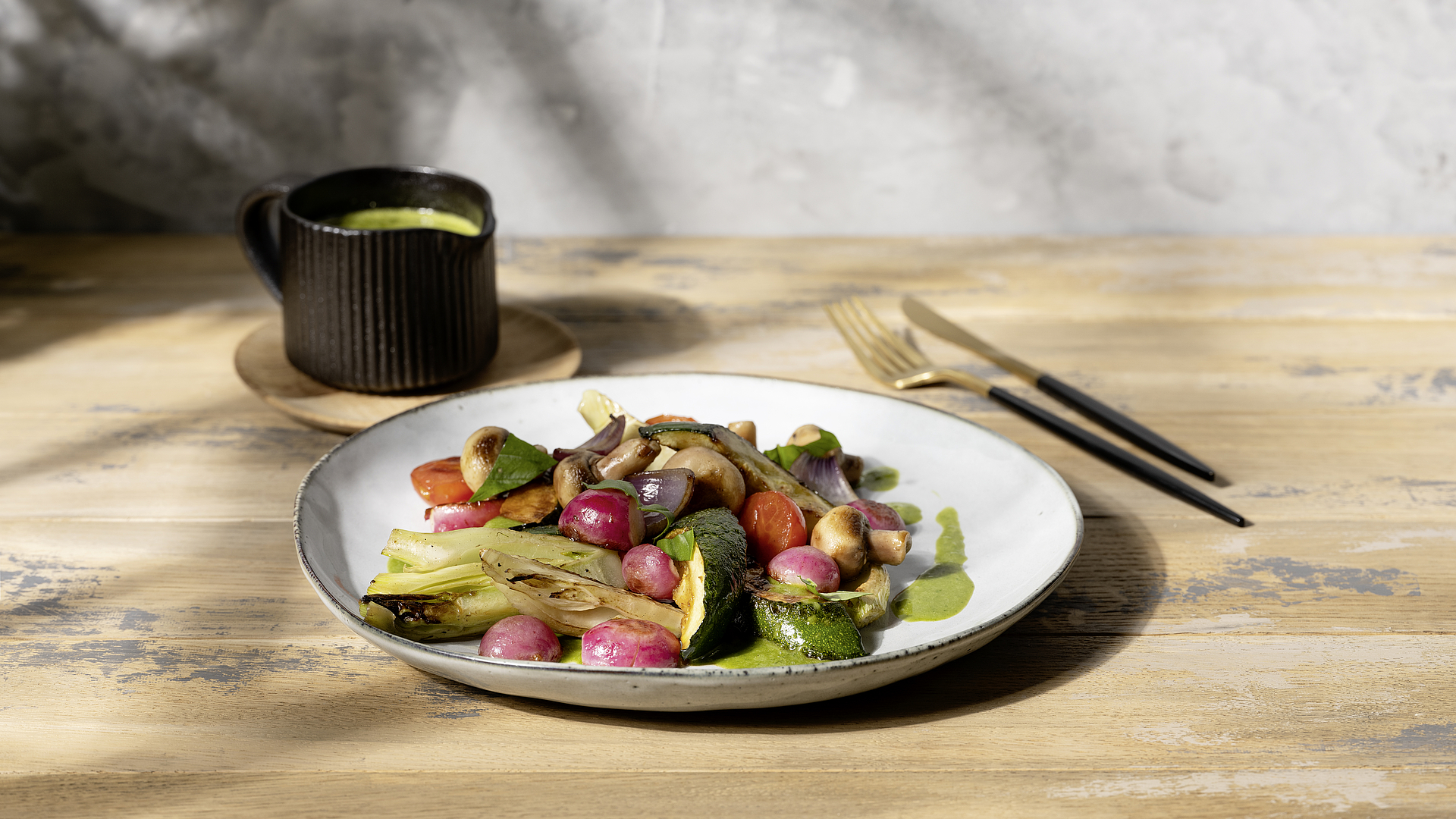
Healthy and delicious: Mediterranean food
Fresh vegetables with grilled meat and tasty dishes with freshly caught fish – such meals remind many people of their last holiday in Crete, Sardinia or Mallorca, and are prime examples of Mediterranean cuisine. Read on to discover why we love them so much.
Fresh, healthy and varied
Although pizza and pasta instantly spring to mind for many people, Mediterranean cuisine is varied, balanced and healthy. Furthermore, people in southern Europe, North Africa and parts of the Near East retain a clear focus on seasonality and regionality. In most Mediterranean regions, people eat the things that are available to them: fresh fish, lots of fruit and vegetables, nuts and locally produced oil.
People’s diets mainly consist of high-fibre foods, wholegrain products, fish and poultry. These are good for the cardiovascular system. A high-fibre diet also helps to reduce cholesterol and regulate blood lipids.
Yet it is not just about what is eaten in the Mediterranean, but how things are eaten: people eat slowly and mindfully, savouring every bite, and prepare their meals carefully. Mediterranean culture is known for being sociable and communicative. People love getting together for meals – and doing so has a positive effect on mental wellbeing.
That holiday feeling and everyday suitability
In addition to slowly braised dishes, there are also several Mediterranean meals that can be quickly and easily made for everyday enjoyment – and that have therefore long been extremely popular in Central European households.
These particularly include several pasta dishes, the wide-ranging popularity of which is closely linked to globalisation and tourism. Furthermore, migrant workers from Italy came to Germany and Austria in the 1950s and 60s, bringing with them traditional cooking methods and ingredients.
Today, local supermarkets stock innumerable varieties of pasta. Many of the staple foods that you’re likely to have in your home actually come from Mediterranean, e.g. olives, feta, garlic and citrus fruits. Other items such as truffles, prickly pears and carob can only be found in specialist stores. The fruit from the carob tree is dried and ground into powder, which can be used as a substitute for cocoa.
Healthy Mediterranean food
It is without a doubt that not all dishes from the Mediterranean are healthy. If you want to enjoy a healthy Mediterranean diet, we recommend the following foods:
- Fresh, seasonal vegetables such as courgettes and lettuce are a must. They can be served as a side or added to vegetarian dishes as main ingredients.
- Fresh fish (ideally gilthead bream, sea bream or red mullet) plays an important role in Mediterranean cuisine.
- Grilled poultry, for example for Greek souvlaki or Turkish kebabs.
- Extra virgin olive oil, fresh herbs and garlic lend a popular Mediterranean (holiday) taste to fish, meat and vegetables.
- For a healthy Mediterranean meal, you should opt for seasonal fruit such as figs or melons instead of heavy desserts.
- Nuts, seeds and pulses make great toppings for low-fat yogurt, which can be enjoyed as a healthy Mediterranean breakfast. On the other hand, you should eat eggs in moderation.
You should avoid red meat, wheat and sugary foods. Even without these, Mediterranean cuisine is still varied, healthy, colourful and brimming with holiday feeling.